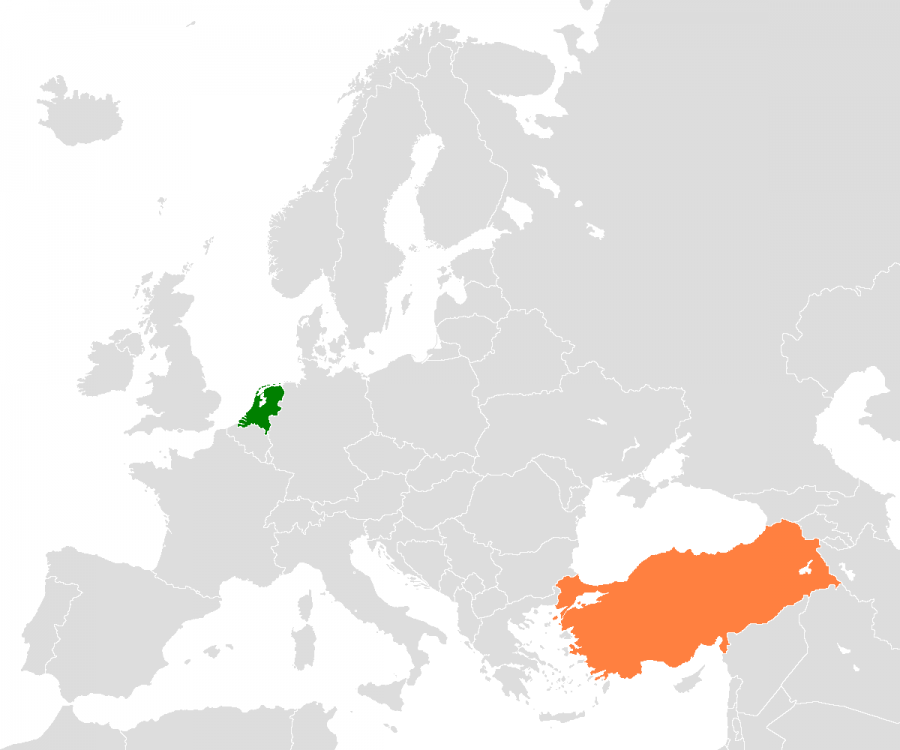For “The Right”: The Curtains Unveiled, Disaster in Turkey and The Netherlands
2017 will be a significant year for much of Europe. This year, Germany and France will have their presidential elections, Turkey will vote to pass a Constitutional Referendum and the Netherlands began their General Elections on March 15th and the results were be announced on March 21st. The latter two are especially relevant due to the recent diplomatic disaster between the two. In order to understand the reactions and actions of the two nations, some context must be established.
– The Turkish Constitutional Referendum, to be held on April 16th, will put 18 amendments to the democratic test. These amendments were proposed by the ruling president, Erdogan and his party (AKP.) The purpose of these amendments is to strengthen the power of the president and altering the balance of powers. From the course of March 13th to March 17th the opinions went from 55.7% yes and 44.3% no, to 44.7% yes and 52.3% no.
– Turkey has some of the more bizarre voting laws in the democratic world. They allow citizens living in other countries to vote in the Turkish elections. Additionally, even though it is supposed to illegal for parties to campaign overseas, every party does it regularly with the blessing of the judiciary.
– And lastly, there are 400,000 first generation immigrants from Turkey currently living in the Netherlands. In comparison, there are about 60,000 people currently serving in the Dutch military and 32,000 men in the reserve.
This culminated on March 9th under the guise of a typical diplomatic meetup. On that day, the Dutch foreign minister, Bert Koenders, told the Turkish foreign minister Mevlut Cavusoglu that there would be no meeting between the nations, canceling a planned visit in Rotterdam (a source of many of Netherland’s Turks.) Keep in mind that up to this point, Europe was beginning to catch wind of the election, in fact, the governments of Germany, Austria, Switzerland and Denmark had already barred several Turkish officials from hosting “Yes” campaigns in those countries. It seemed that as a result Cavusoglu cracked, and threatened the Netherlands with sanctions if he was not allowed in. Thus the Dutch prime minister, Mark Rutte, revoked Cavusoglu’s right to land in the Netherlands.
In a move of impulsive denial, Turkey sent in their Minister of Family and Social Policies, Fatma Betul Saya Kaya, to Rotterdam by car. This is in spite of the fact that the Turkish government told the mayor of Rotterdam that she would not be coming to the Netherlands. After being caught, she was made so that she could not re-enter the country (a persona non grata) after she was escorted out of the country. Thus, began a myriad of perplexing events.
Over 1,000 protesters went to the Turkish consulate to protest against what would be an enforcement of their “own” law. Additionally, Erdogan was ironically prompted to call the Dutch “Nazi remnants” and “Fascist.” Diplomatically, this went down as well as one could possibly expect, with each side banning each other’s embassies. However, the Turks must be congratulated for setting the bar lower than could’ve ever been thought possible. Some protesters in Izmit (A Turkish City) were mistakenly burning the French flag since they thought that the French president, Francois Hollande, was the president of the Holland (In reality, Holland is a Dutch province.) Yet more Turkish protesters intended to call the police department of Rotterdam and force them to listen to religious and nationalistic songs, but instead called the police department of Rotterdam, New York. Despite the insanity displayed by Turkey’s citizenry, it can only whimper in the sight of the actions of their government. For instance, on March 15th Istanbul disconnected their non-existent ties with Rotterdam, which is 1,600 miles away. The Turkish interior minister, Suleyman Soylu, threatened to send 15,000 migrants to the European Union every month. In addition, upon learning of the results of the Dutch elections, Cavusoglu predicted that a holy war would begin in Europe.
This is in stark contrast to the reactions of the Dutch. They, instead of protesting against their own laws, did two things: have Prime Minister Rutte state that “This has never happened before; a country saying someone is not welcome and then them coming regardless.” Secondly, a national poll was held showing that 86% of the population supported the actions of the Netherlands (as opposed to 10% condemning) and 91% of the Dutch population blamed the Turkish government for this mess. The aftermath of this is stark; this soured the Dutch opinion of their migrants at the last possible moment and essentially ruins any chance of Turkey ever getting into the EU.
The new Dutch opinion couldn’t have come at a more convenient time for Geert Wilders, a populist who is the leader of the Party for Freedom (PVV.) Although it was impossible for the PVV to win that election (being under a liberal coalition) he will be a core part of the next government due to his anti-immigration stance. The PVV gained 5 seats, making them the second largest party while his competition, the VVD lead by Rutte lost 8 seats, who only remains the largest party due to Rutte’s handling of the diplomatic crisis. Thus at the last possible moment, history is altered. The favor of the people continue to lead away from the spontaneity of identitarian politics and towards a more tempered policy and reaction. Let this be an example for the politicians of the future.

